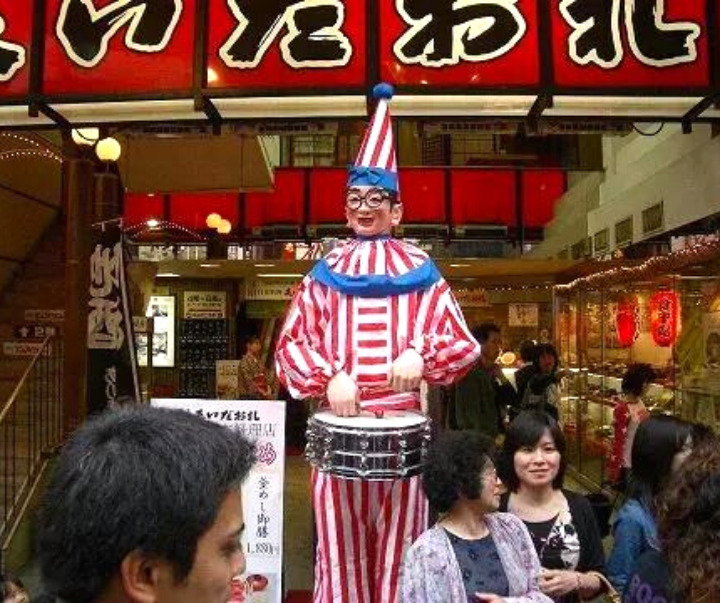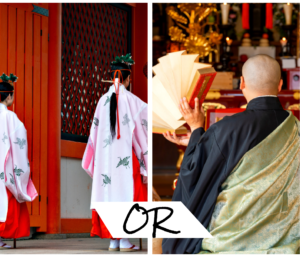
Without doubt, Kansai-ben (関西弁) is a very notable group of Japanese dialects amongst Kansai region.
But, the Kansai dialect is very often associated with only Osaka dialect, considering this city is the largest and most popular one in the Kansai region. That is not all accurate!
This group of Japanese dialects include cities of Osaka, Kyoto, Kobe , with each of them having a particular dialect.
Certainly, you will frequently hear Kansai dialect spoken on Japanese TV shows and by locals of this region. In this article we will surely introduce the essentials of Kansai-ben and learn together new phrases to use and make friends with the residents.
Where should I use the Kansai dialect?

At this point, is traveling to Osaka or Kyoto on your bucket list?
If so, learning just a few simple words or phrases in Kansai dialect will make your trip more amusing and unforgettable.
This region is moreover known for its famous comedians and the very fast spoken dialect. The association of Kansai dialect with comedy makes the day-to- day conversations even more entertaining.
Japan is very rich with its prefectural variations in the Kansai dialect. This large region is made up of the prefectures: Osaka, Shiga, Nara, Kyoto, Wakayama and also Hyogo.
Considering the number of prefectures, accordingly the dialect changes depending on the area, having distinctive attributes.
So, should this scare you away from learning this unique dialect? Absolutely NOT!
Studying the Kansai-ben will surely enrich your journey of learning Japanese. In this article you will indeed get the first step of learning this dialect and the chance to go through our fun examples of Kansai dialect.
Kansai and Tokyo dialect differences!

As stated previously Kansai dialect varies depending on the location in the region, but how much does it differ with dialects of other cities of Japan?
We will specifically portray the differences with a very fun conversation below:
ちゃう ( Chau ) ー wrong , is not ...
A:あれ、これなんていう犬やっけ? (Are, kore tante iu inu yakke?)
Hey, I know this kind of dog, what’s it called?
B:たしか、チャウチャウとかいうんじゃなかったっけ? (Tashika, CHAU CHAU toka iunja nakattakke?)
I think it’s called something like “Chow Chow”?
A:ちゃうちゃう(=違う違う。( Chau chau )
No way!
On the other hand In Kansai-dialect, it sounds exactly like “chow chow” *
B:そうでしょ、チャウチャウでしょ。( Soudesyo, CHAU CHAU desyo )
I thought so. It’s Chow Chow.
A:いや、ちゃうちゃう。( Iya, chau chau )
No, it’s not.
B:だから、チャウチャウでしょって。( Dakara, CHAU CHAU desyo tte )
Yeah, that’s what I undeniably said.“Chow Chow”
A:いや、だから、ちゃうって。( Iya, dakara, chau tte )
チャウチャウちゃうんちゃう(=違うんじゃない)って? ( CHAU CHAU chaun chau )
No, it’s not! I don’t think it’s Chow Chow, isn’t it?
B:は??? ( ha? )
What???
A:そうやな。チャウチャウとはちゃうな。 ( Souyana. CHAU CHAU towachauna )
I agree. I don’t think it’s Chow Chow, either.
Lastly, what do you think, was the dog a “Chow Chow” breed?
Do you find the Kansai dialect even more interesting from this short funny conversation?
Phrases to know before your trip to the Kansai region!

Is Kansai dialect generally hard to learn? The answer is yes and no! But this shouldn’t scare you!!
We do encourage you to learn a bit of basic standard Japanese before starting with the Kansai- ben.
Worry less, for you to have a very fun and personalized Japanese learning journey is explicitly our top priority.
We have listed here several Kansai-ben examples for you to know before enjoying your trip to this region. ↓
| Number | Kansai-ben examples | Romaji | Meaning |
| 1 | 毎度おおきに | Maido ōkini | Thank you as always! |
| 2 | おいでやす | Oideyasu | Welcome! |
| 3 | ええで | Eede | No problem / OK |
| 4 | おはようさん | Ohayou-san | Good morning! |
| 5 | ほんま/ ほんま? | Honma? | Really / Really? |
| 6 | なんでやねん | Nandeyanen | Why / No way! |
| 7 | かんにん かんにん | Kannin Kannin | Sorry Sorry (made a mistake) |
| 8 | わからへん | Wakarahen | I don't get it! |
| 9 | あきまへん | Akimahen | That's not good. |
| 10 | ごきげんさんやなぁ! | Goki gen-san'ya nā! | You look so happy!! |
| 11 | べっぴんさんやなぁ〜 | Beppin-san'ya nā! | You are so pretty~ |
| 12 | おまっとさん | Omatto san | Thank you for waiting |
| 13 | めっちゃ, うまいわ! | Meccha Umaiwa | It's very delicious!/ It's very skillful |
| 14 | ほないこか | Hona ikoka | Let's go |
| 15 | ほな さいなら | Hona Sainara | Then, Goodbye |
Would you put learning Kansai dialect on your 2023 bucket list? However, the various dialects are just a small segment of the very rich and unique culture of Japan.
To fully learn and understand a language, it is necessary to know also the culture in which it was developed.
Unlock fresh perspectives with our newest JAPANese special course, in collaboration with our partner Hiragana times magazine. Let’s talk about Japan!
Now participants from all over the world are more than welcome to join!
With a new cultural topic every session, you will surely achieve an elevated knowledge of Japanese culture.
You can now have the full package of the Japanese language knowledge with We.
So, Hurry up and join We Languages today!
Learn Japanese as it relates to you with We (JapaNEEDS)! Get the course that best fits you at We, you earned it:↓



Hi we-japan.com owner, You always provide helpful diagrams and illustrations.